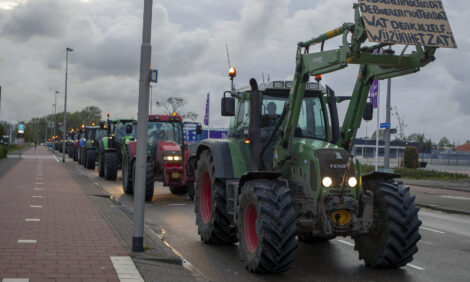



Public Upset as Inspectors Don't Visit BSE Outbreak
SOUTH KOREA - South Korean inspectors sent to the United States to check the safety of beef failed to visit a cattle farm in central California that reported the latest case of bovine spongiform encephalopathy (BSE), an official source said last week.Joo E-suk, head of the inspection team, said indirect contact was made with the owner of the farm through a local veterinarian.
He did not elaborate on details but said the team did not visit the farm.
Others said inspectors asked the veterinarian to pose questions to the owner with the answers given relayed to the South Korean team.
South Korean experts had wanted to visit the farm and check how the animals were raised, including the kind of feed used, reports Yonhap News. They also wanted to check details pertaining to the dairy cow that was confirmed to have caught the atypical form of BSE.
The failure to visit the farm is a setback for the inspectors who placed considerable importance on an on-site examination of the farm.
Inspectors had said they had repeatedly tried to arrange a visit to the farm where the dairy cow was raised, but were unable to make headway due to the adamant refusal of the owner.
The South Korean team, meanwhile, visited cattle-related facilities, such as rendering plants, feed factories and cattle ranches in Fresno County to get an overall understanding of how animals are raised and processed.
In addition, experts checked to see if rules that ban the use of meat and bone meal in the feed for cloven-hoofed animals are being observed and if there was systematic process to regulate the kind of feed given to animals.
"US facilities were very cooperative in sharing information including related papers," a inspection team member told Yonhap.
The inspectors led by officials from the farm ministry are in the United States after Washington confirmed its fourth BSE case late last month. The discovery raised consumer concerns in South Korea with some calling on the government to halt the quarantine inspection of all beef from the North American country.
Seoul refused to take such a step and sent a team of experts to confirm scientific findings made by the United States and look into general cattle raising practices to see if official guidelines are being followed.
Government officials, meanwhile, said since Seoul only imports beef from cattle less than 30 months old, there is no risk that the meat of infected animals could reach South Korea.
Further Reading
|
| - | Go to our previous news item on this story by clicking here. |
TheCattleSite News Desk


